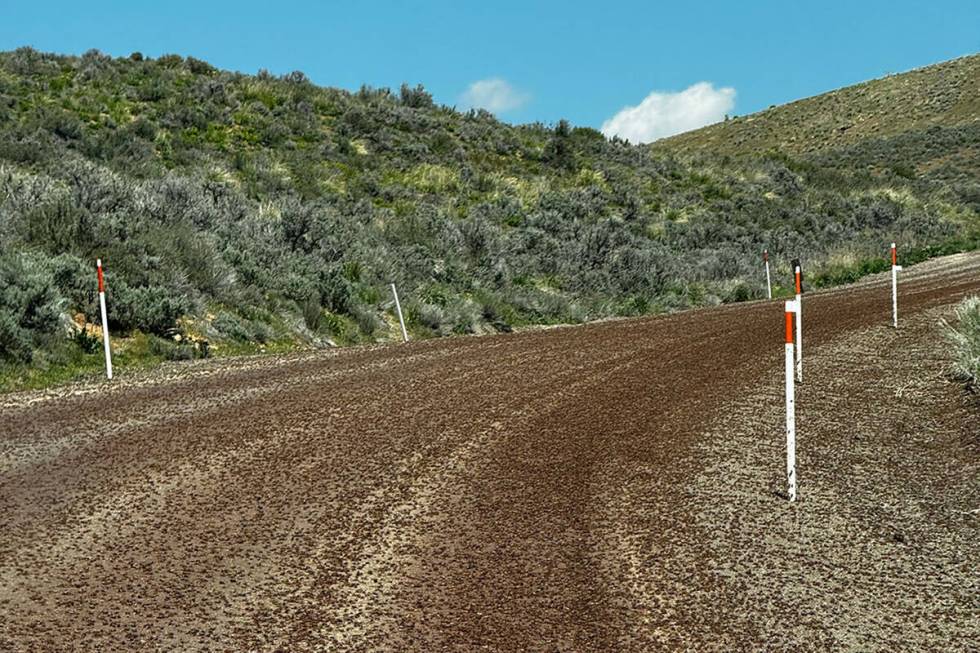NDOT crews use snow plows to clear droves of Mormon crickets from state highways

Snowplows are used on roads to clear winter snows, but they also come in handy in the summer to deal with another nuisance on northeast Nevada roads — hordes of Mormon crickets.
Seasonal cricket swarms near the Elko area are covering some highways, leading to dangerous driving conditions along affected stretches, according to the Nevada Department of Transportation. Rain can add to the problem because crickets on wet roads create slick driving conditions.
First responders this year also have noted incidents involving drivers traveling too fast in areas affected by Mormon crickets. State law requires motorists to slow to a speed safe for current conditions, which includes insect swarms on roads, NDOT said. Similar incidents were also reported last year.
“It is cricket season, and you can see they are really taking over a lot of our state highways,” NDOT Director Tracy Larkin-Thomason said during Monday’s NDOT board of directors meeting, referencing a photo of state Route 225 covered in crickets.
The issue is compounded when the insects are crushed on the road, and others replace them because of their cannibalistic nature.
“They’re carnivorous, so basically when they’re on the roadway, if someone runs over (one), then more crickets come on once they’ve been hit and it becomes very slick,” Larkin-Thomason said.
Crews are using snowplows and sanding the roads to clear the crushed insects. After plowing occurs, maintenance workers use high-pressure hoses to clean crickets from the plows and other state vehicles.
Crews began to notice the insects on state roads in May on a portion of Interstate 80 near Emigrant Pass and the Osino interchange east of Elko. As of this week, Mormon crickets also have been seen on state Routes 225, 227, 228 and 278, according to the transportation department.
NDOT highway maintenance staff carry out 75 tasks to maintain and ensure safety on state highways, including snow removal to roadway surface and drainage repairs and seasonal cricket removal to increase traction in affected areas.
Cricket-related highway maintenance is covered through NDOT’s annual regional operation budgets, with such work funded through state highway money.
NDOT has placed temporary electronic signage on Elko-area highways to alert drivers to slow down in areas of cricket infestation. The signs are routinely moved to be near where bands of crickets are located at a given time.
With this year’s invasion particularly heavy, various road preservation projects in the area are being placed on hold, Larkin-Thomason noted.
“They’re going to have to be delayed to another year,” she said, “simply because they are not part of our mix design and we can’t clear them enough to keep them off the roadway.”
Contact Mick Akers at makers@reviewjournal.com or 702-387-2920. Follow @mickakers on X.